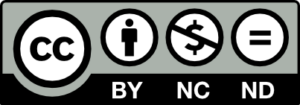During the first weekend of February, while the media focused on President Trump’s escalating tariff trade war, a battle of a different type raged on in the offices of the United States Agency for International Development.
Better known as USAID, the independent agency of the U.S. State Department is responsible for administering civilian (i.e., nonmilitary) foreign aid and development assistance. The agency has unquestionably done enormous good throughout the world by helping to alleviate or eliminate diseases, poverty, and other threats.
Many of those efforts take place in the environmental realm, with programs to reduce wildlife poaching and trafficking, tackle deforestation, assist environmental refugees, study animal populations in the wild, and protect people in critical habitats.
But to Musk, USAID is “hopeless” and deserves to be thrown “into the wood chipper.” Over the past few days Musk allies have bullied their way into USAID offices, accessed critical systems (and classified documents), hollowed out the agency’s leadership, turned off the agency’s website, and locked staff out of their headquarters. “We’re shutting it down,” Musk wrote on X.
Many question the legality of these options, but that hasn’t stopped Trump or his allies in any of their regressive activities since he regained power.
If allowed to continue, the destruction of USAID will create shockwaves throughout the world — and worsen the ongoing climate and extinction crises.
Here are just a handful of examples of USAID’s recent environmental efforts:
-
- In Tanzania, the $30 million Hope Through Action project — a collaboration with the Jane Goodall Institute — “aims to improve protection for key chimpanzee corridors and 2.5 million additional hectares, increase the incomes of 450,000 people, develop a National Youth Council and more.” (This includes efforts to foster “gender equality in land-ownership rights,” which makes it a target for Trump’s anti-DEI efforts.)
- USAID is one of the primary partners in the RISE program, which supports “Resilient, Inclusive and Sustainable Communities” by addressing gender-based violence as it connects to environmental and climate-related issues.
- The agency has helped train hundreds of wildlife rangers in Cambodia and other countries.
- USAID’s Saving Threatened Wildlife project has spent several years working to stop wildlife trafficking in Vietnam, with work on the national and provincial lessons. Most recently USAID trained tourism professionals in Quang Ninh Province, “equipping them with knowledge, tools, and strategies to discourage tourist purchases of illegal wildlife products” such as elephant ivory.
- The agency has also helped to fight deforestation in Vietnam to conserve biodiversity and alleviate poverty, and carried out the country’s largest camera-trap survey, which revealed wildlife population declines across Vietnam.
- A project in Papua New Guinea “facilitated the development of a conservation deed to protect the endangered Western Pacific leatherback sea turtle and preserve the rights of coastal communities.”
- The discovery of a new orangutan species in Indonesia several years ago only happened thanks to funding by USAID. More recently, this past December, the agency announced the U.S. and Indonesia were working together to “advance orangutan conservation” in a now-deleted press release.
- USAID funded local efforts in Bangladesh that helped reverse an endangered fish’s decline.
- Funding in the Philippines helped to “reduce poaching and use of illegally harvested wildlife species and byproducts, and improve ecosystem goods and services for human wellbeing.”
- The agency worked with several partners to document a biodiversity stronghold for endangered species in Cambodia, an effort that will help protect Asian elephants, dholes, sun bears, clouded leopards and other wildlife.
- Also in Cambodia, the agency’s Wonders of the Mekong project that has helped conservation efforts of the critically endangered Mekong giant catfish.
- In 2022, during the height of the COVID pandemic, USAID and several other organizations organized meetings to develop strategies to minimize the risk of future zoonotic disease outbreaks, one of many efforts in this area.
- In Madagascar USAID invested “nearly $80 million” by November 2023 “to help communities mitigate and adapt to climate change, manage and benefit from their natural resources, create environmentally friendly livelihoods, combat wildlife trafficking, and prevent deforestation.” (The official web page about this has been removed, but it’s still accessible through Archive.org’s Wayback Machine.)
- In Mozambique a multiyear effort by USAID has “encouraged prosecutors and judges to prosecute wildlife crimes, ending poachers’ impunity.” (Wayback Machine link.)
- The agency organized workshops in Ghana to engage people from the finance and transportation sectors to address wildlife crime.
- USAID has worked with airlines to fight illegal wildlife trafficking through its ROUTES partnership, which stands for Reducing Opportunities for Unlawful Transport of Endangered Species.
- In Liberia the agency worked with a local youth organization to hold a national conference on conservation and sustainability.
- USAID worked with the Journalists Environmental Association of Tanzania to hold a meeting on biodiversity conservation and encourage more coverage of wildlife in the media.
- The agency helped fund efforts that discovered an amazing small boa species in the Dominican Republic.
- And USAID funds the Famine Early Warning Systems Network, a critical tool for predicting humanitarian and ecosystem crises, which has been offline since the U.S. froze foreign aid.
This just scratches the surface — hundreds of additional examples both large and small existed on USAID’s now-shuttered website (and can still be found on other sites they haven’t figured out how to delete or turn off yet).
And environmental issues comprise just one small portion of USAID’s mandate. Millions of people around the world seem likely to suffer from the assault on this one agency — one of many currently under assault in the second Trump administration.
Of course, the president lacks the authority to kill off a federal agency. As Tess Bridgeman wrote for the website Just Security, “while some functions delegated from the president to the secretary of state, and in turn to the administrator of USAID, could likely be pulled back by executive action alone, wholesale dissolution of the agency or formal transfer of functions provided by Congress would require legislation.”
That doesn’t help the employees who have already lost their jobs, the organizations around the world waiting for funding, or the people or animals now in greater jeopardy. But the legal reality is also a bit of a lifeline — if Congress and the courts do their jobs and save USAID from Musk’s woodchipper.
Social media has been buzzing about the attack on USAID. Here are some important posts:
— USAID Lives! Alt USAID (@altusaid.bsky.social) February 2, 2025 at 11:02 AM
Former senior #USAID, @agawande.bsky.social tells FOX News on purge:
“It’s insane”
“A gift to our enemies”
“Ebola outbreak…Bird flu has broken out in 49 countries. Our efforts to contain them have all been shut down.”
“USAID was funding the treatment for 20 million people with HIV worldwide”
— Ryan Goodman (@rgoodlaw.bsky.social) February 3, 2025 at 4:21 AM
Elon Musk wanting to dismantle the #USAID is starting to make sense. Just pure unmitigated revenge by “Apartheid Clyde.”
— Maya Contreras (@mayatcontreras.bsky.social) February 3, 2025 at 2:34 AM
It is getting worse every day.
usaid.gov has gone dark.
Life-saving humanitarian aid programs are halted.
And the infamous billionaire is calling for #USAID “to die”This is just a level of madness that I could have never imagined…
— Leif Erik Sander (@sanderlab.bsky.social) February 2, 2025 at 12:10 PM
The assessment from a #USAID friend 💔
— Aram Sinnreich (@aramsinn.bsky.social) February 3, 2025 at 6:02 AM
Gotta be honest, I don’t think he has ANY idea what exactly he just signed or why he signed it. #SaveUSAID
— USAID Lives! Alt USAID (@altusaid.bsky.social) February 3, 2025 at 10:56 AM
It’s hard to overhype how dangerous this moment is. This a naked attempt to seize government by the right wing billionaire class so they can steal from the American people.
— Chris Murphy (@chrismurphyct.bsky.social) February 3, 2025 at 8:12 AM
REP. BEYER: “What Trump and Musk have done is not only wrong, it is illegal. USAID was established by an act of Congress and can only be disbanded by an act of Congress.”
— The Tennessee Holler (@thetnholler.bsky.social) February 3, 2025 at 10:30 AM
Ilhan Omar says “When people are fleeing, and they need just little bit of food and USAID is there to provide that, that creates goodwill for the American people.”
— Eric Michael Garcia (@ericmgarcia.bsky.social) February 3, 2025 at 10:29 AM



